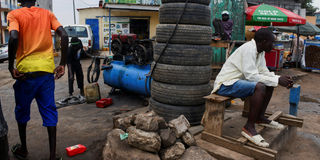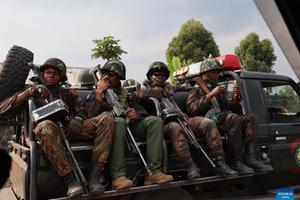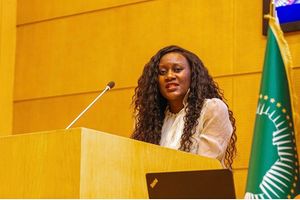
Puncture repair artisans prepare to receive customers along the street following a night of gunfire after security forces moved to arrest the former head of the intelligence service, in Juba, South Sudan November 22, 2024.
Heavy gunfire erupted in South Sudan's capital Juba on Thursday evening after security forces moved to arrest the former head of the intelligence service, according to Reuters reporters and an alert sent to United Nations staff.
The gunfire began around 7 p.m. local time and continued sporadically for more than an hour before dying down, Reuters reporters said.
A U.N. safety alert to staff members in Juba, seen by Reuters, said the shooting was related to the arrest of the former head of the National Security Service (NSS). It urged U.N. staff to shelter in place.
In early October, President Salva Kiir dismissed Akol Koor Kuc, who had led the NSS since the country's independence from Sudan in 2011, and appointed a close ally to replace him.
Army spokesperson Major General Lul Ruai Koang said Akol Kuur had not been arrested and had stayed in his house throughout the shooting. Koang said he would address reporters later on Friday after a meeting with other security officials.
Analysts said the sacking of Akol Koor reflected a power struggle at the highest levels of government. It came weeks after the transitional government that Kiir leads announced that elections expected in December would be postponed for a second time.
Rival factions loyal to Kiir and First Vice President Riek Machar fought a civil war from 2013 to 2018 that resulted in hundreds of thousands of deaths.
The two have governed together since then as part of a transitional government. There has been relative peace, but the opposing forces clash periodically in addition to frequent fighting among a patchwork of armed groups in rural areas.


